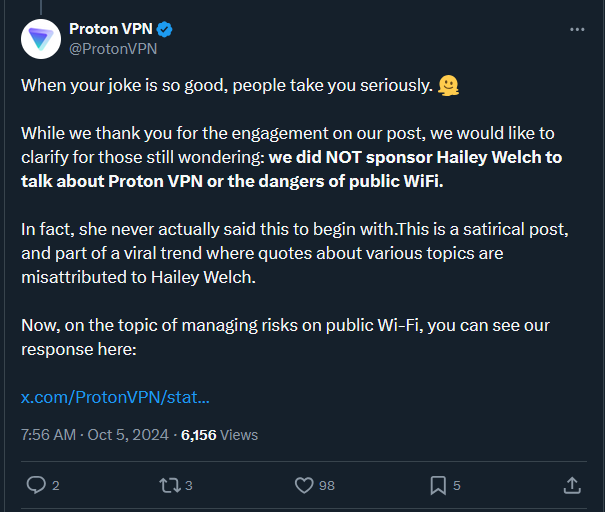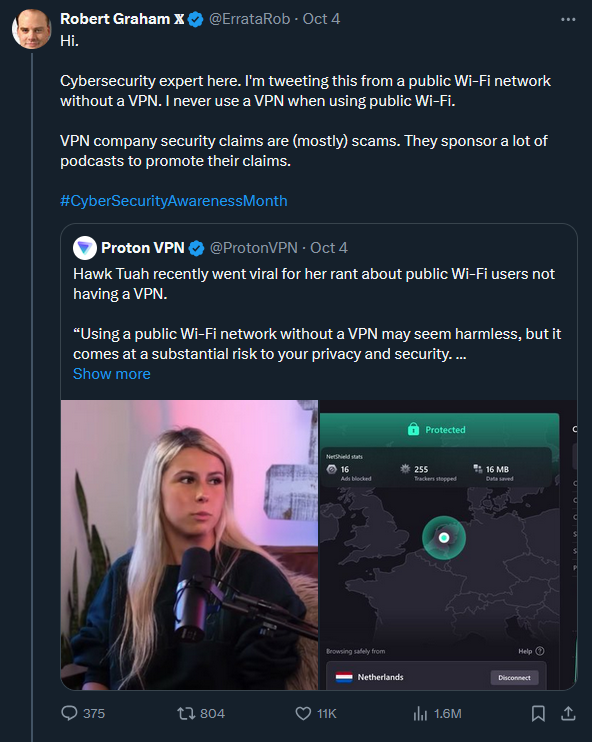this post was submitted on 06 Oct 2024
733 points (90.8% liked)
Technology
61227 readers
6140 users here now
This is a most excellent place for technology news and articles.
Our Rules
- Follow the lemmy.world rules.
- Only tech related content.
- Be excellent to each other!
- Mod approved content bots can post up to 10 articles per day.
- Threads asking for personal tech support may be deleted.
- Politics threads may be removed.
- No memes allowed as posts, OK to post as comments.
- Only approved bots from the list below, to ask if your bot can be added please contact us.
- Check for duplicates before posting, duplicates may be removed
- Accounts 7 days and younger will have their posts automatically removed.
Approved Bots
founded 2 years ago
MODERATORS
you are viewing a single comment's thread
view the rest of the comments
view the rest of the comments


On public WiFi I just vpn into my home network. The issue with public WiFi is that it can be sniffed by anyone in range since there is generally no encryption.
Although pretty much everything we do is over tls these days, and DoH helps protect against even dns sniffing. There's still at least some risk to working in the clear over a public WiFi network. At least in information gathering, what bank you use, etc.
But, there's no real benefit in using a paid vpn over one you own unless you're downloading illegal content, want to watch another Netflix region, or are in a country with heavy Internet monitoring/filtering.
With TLS and DoH, how is your bank and other information leaked?
He said "which bank", which could be determined by the sniffing DNS requests, or seeing which IPs his computer is connecting to.
Not a breach of his personal information (assuming the bank that he's using and the client he's using after putting everything in TLS properly).
But with DoH you can’t sniff the DNS, that’s the whole point.
But you can see the ip address, which will id the bank. They can derive other information by ip addresses or leaked data and there's still things using unencrypted connections even today. I generally just connect to my home vpn so at least it's inly my isp spying on me.
Generally you can also read the SNI.
I think this is one of the things that ech is meant to solve. But ech/esni is still not widespread on smaller sites yet I think.
You actually still can. Have a look at DNS fingerprinting
Possibly the domain is visible with a traffic monitoring tool. Everything else is between you and the bank via HTTPS. Having said that, whatever is not over https is visible to whoever sits on the same network as yourself.
Importantly, you probably don’t know what all is encrypted in every app you use on your phone, so it’s best practice to encrypt the transport.